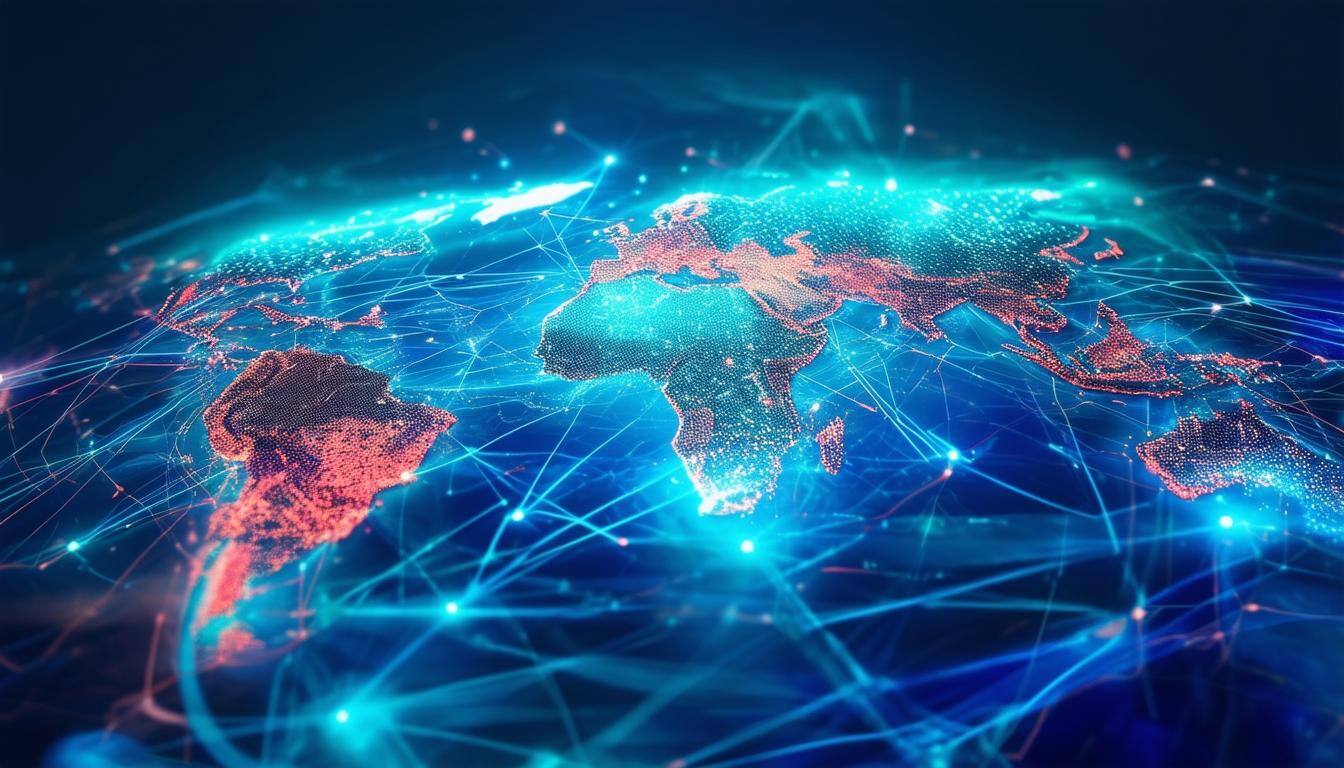
Global Cabling Systems: Impact of Geopolitical Issues on Connectivity Infrastructure
In an increasingly interconnected world, global cabling systems—both submarine and terrestrial—form the backbone of international communications and infrastructure. These systems ensure seamless business operations, financial transactions, and even governmental functions. As businesses become more reliant on uninterrupted connectivity, particularly in industries like cloud services, telecommunications, and financial institutions, the importance of resilient and secure global cabling systems cannot be overstated.
However, while these cables are vital for communication, they are not immune to the effects of geopolitical tensions. From trade wars to regional conflicts, various geopolitical issues have the potential to disrupt these critical infrastructures, posing challenges to business continuity and digital sovereignty. BSO has taken an authoritative role in navigating these challenges by offering expert solutions to mitigate risks and ensure highly resilient infrastructure for our clients.
The Global Importance of Submarine and Terrestrial Cables
Global cabling systems are the unsung heroes of modern connectivity. Submarine cables, in particular, carry an estimated 95% of the world’s intercontinental communication traffic. These cables, spanning oceans and continents, support everything from everyday business communications to critical financial transactions. The sheer scale of activity routed through these cables is staggering; for example, approximately $10 trillion worth of financial transactions pass through them each day.
These cables do more than just facilitate communication—they are the backbone for business continuity. Whether it's multinational corporations or cloud service providers, uninterrupted connectivity is vital for smooth operations, data transfer, and secure communications. While many enterprises focus on cloud solutions and data centres for their digital infrastructure, the actual physical cables that connect countries and continents are often overlooked until they face disruptions.
The hidden nature of global cabling systems doesn’t negate their importance. As businesses expand globally and rely on cross-border operations, the uninterrupted functioning of these cables becomes an absolute necessity. Any disruption, whether caused by natural phenomena or geopolitical issues, can have wide-reaching effects on everything from banking and finance to national security.
Key Geopolitical Issues Impacting Global Cabling Systems
In recent years, geopolitical tensions have increasingly spilled over into the realm of digital infrastructure, with global cabling systems often caught in the crossfire. Conflicts over trade, territorial disputes, and regional instability all pose risks to these critical systems. Specific regions, such as the South China Sea and the Middle East, have emerged as geopolitical flashpoints where cabling infrastructure is particularly vulnerable.
For example, the South China Sea is not only a strategic military region but also a critical corridor for submarine cables. Tensions between China, Taiwan, and other regional players have made the area susceptible to disruptions. Incidents of cable cutting, allegedly linked to Chinese vessels, have already been reported. These events highlight the risks businesses face when their network infrastructure runs through politically sensitive areas.
In the Middle East, ongoing conflicts have similarly threatened terrestrial and submarine cable projects. Political instability, coupled with military activities, has delayed or even disrupted essential infrastructure projects. This region, which serves as a major hub for international communication cables connecting Europe and Asia, is prone to disruptions, forcing businesses to rethink their reliance on certain routes.
Geopolitical issues are not confined to these regions. The emerging Arctic routes, for example, are also being eyed as potential new pathways for global cables. However, these new routes come with their own set of geopolitical risks, including territorial claims by multiple nations, which could spark disputes over control of these vital infrastructures.
Security Concerns and the Rise of Digital Sovereignty
As digital infrastructure becomes more critical to national security, many governments are asserting greater control over their cabling systems in a bid to safeguard their digital sovereignty. The notion of digital sovereignty—the idea that nations should have control over their own digital infrastructure—has gained traction in recent years as cyber threats and geopolitical rivalries continue to evolve.
Countries like China and Russia have increasingly exerted control over cables to gain a strategic advantage. China's role in cable disruptions and Russia's activities in NATO territories have raised significant cybersecurity concerns, prompting nations and businesses alike to rethink how they approach global cabling systems. The risks associated with cabling disruptions extend beyond economic concerns to include data privacy, espionage, and national security.
This growing emphasis on digital sovereignty has led to a rise in domestic policies aimed at securing national infrastructure. Nations are now investing in alternative cable routes and new technologies to mitigate the risks posed by foreign control or interference in their communication systems. This shift toward digital sovereignty is expected to reshape the global cabling landscape in the coming years as more countries seek to protect their digital borders.
Business Impact and Continuity
For businesses and other entities, the implications of geopolitical tensions on global cabling systems are significant. Disruptions to these infrastructures can lead to massive financial losses, particularly for industries that rely on real-time communication and transactions. Institutions such as finance, cloud services and other large multinational corporations are particularly vulnerable, given their dependence on uninterrupted global connectivity.
However, businesses are not powerless in the face of these challenges. By proactively assessing the risks associated with cable routes in politically volatile regions, companies can develop strategies to safeguard their operations. For instance, as a global leader in network infrastructure, our team at BSO helps businesses maintain business continuity and connectivity by offering fully diverse networks and innovative solutions. Our engineering team has spent decades becoming experts in submarine and terrestrial fibre paths, allowing us to provide and build the ideal solution for your business’ needs.
In high-risk areas like the South China Sea and Red Sea, where geopolitical tensions threaten to disrupt services, it becomes essential for businesses to work with infrastructure providers that have a deep understanding of the local and global landscape. BSO’s expertise in ultra-low latency trading networks and cybersecurity measures ensures that businesses, like yours, can maintain uninterrupted operations even in the face of geopolitical challenges.
Solutions and the Future of Global Connectivity
While the challenges posed by geopolitical issues are substantial, there are emerging solutions that offer hope for the future of global connectivity. One of the most promising developments is the diversification of cable routes. By laying cables along alternative pathways, such as the Arctic fibre cable, or using more secure land-based routes, businesses can reduce their reliance on politically volatile regions.
Additionally, new technologies like satellite communications are being developed to provide supplementary or alternative methods of global connectivity. Although satellite systems may not yet match the capacity of submarine cables, they offer a valuable backup solution in times of disruption. Companies like Google and Microsoft are already investing heavily in new cable infrastructure, demonstrating the private sector’s commitment to ensuring secure, global connectivity in the future.
Global collaboration is also crucial in order for global connectivity to continue. To mitigate the impact of geopolitical tensions, countries and private organisations must work together to establish governance frameworks that protect cabling infrastructure. Initiatives aimed at enhancing the security and resilience of these systems are already underway, but the future of global connectivity will depend on continued cooperation and innovation.
Conclusion
As businesses and governments continue to navigate the complex geopolitical landscape, the importance of alternative and additional global cabling systems cannot be overstated. Infrastructures such as submarine and terrestrial cables, are essential for international communication, financial transactions, and business continuity. However, the geopolitical challenges surrounding these systems—ranging from territorial disputes to concerns over digital sovereignty—pose significant risks to their security and reliability.
Businesses must learn to adapt and seek expert solutions and not rely only on current cabling systems in place. At BSO, our expertise in network infrastructure is well-positioned to help organisations navigate these challenges and ensure uninterrupted operations. By diversifying cable routes, adopting new technologies, and collaborating on global solutions, businesses can safeguard their connectivity against the geopolitical uncertainties of the future.
To explore how BSO can support your business in navigating the complexities of global connectivity, contact us to speak to one of our team experts. Learn more about our global connectivity solutions and the ways we ensure secure network infrastructure for enterprises worldwide.
ABOUT BSO
The company was founded in 2004 and serves the world’s largest financial institutions. BSO is a global pioneering infrastructure and connectivity provider, helping over 600 data-intensive businesses across diverse markets, including financial services, technology, energy, e-commerce, media and others. BSO owns and provides mission-critical infrastructure, including network connectivity, cloud solutions, managed services and hosting, that are specific and dedicated to each customer served.
The company’s network comprises 240+ PoPs across 33 markets, 50+ cloud on-ramps, is integrated with all major public cloud providers and connects to 75+ on-net internet exchanges and 30+ stock exchanges. The team of experts works closely with customers in order to create solutions that meet the detailed and specific needs of their business, providing the latency, resilience and security they need regardless of location.
BSO is headquartered in Ireland, and has 11 offices across the globe, including London, New York, Paris, Dubai, Hong Kong and Singapore. Access our website and find out more information: www.bso.co
SALES ENQUIRY
Get in touch now. Find out how we can transform your business_
You might be interested in_
THE BSO DIFFERENCE
The industries we work across_





/Revolutionising-Connectivity%20BSOs-Tailored-Cloud-Solution-for-CryptoStruct-GmbH.png?width=1050&height=550&name=Revolutionising-Connectivity%20BSOs-Tailored-Cloud-Solution-for-CryptoStruct-GmbH.png)
/6%20Cloud%20Best%20Practices%20for%20Financial%20Technology%20Companies.jpg?width=1200&height=600&name=6%20Cloud%20Best%20Practices%20for%20Financial%20Technology%20Companies.jpg)










